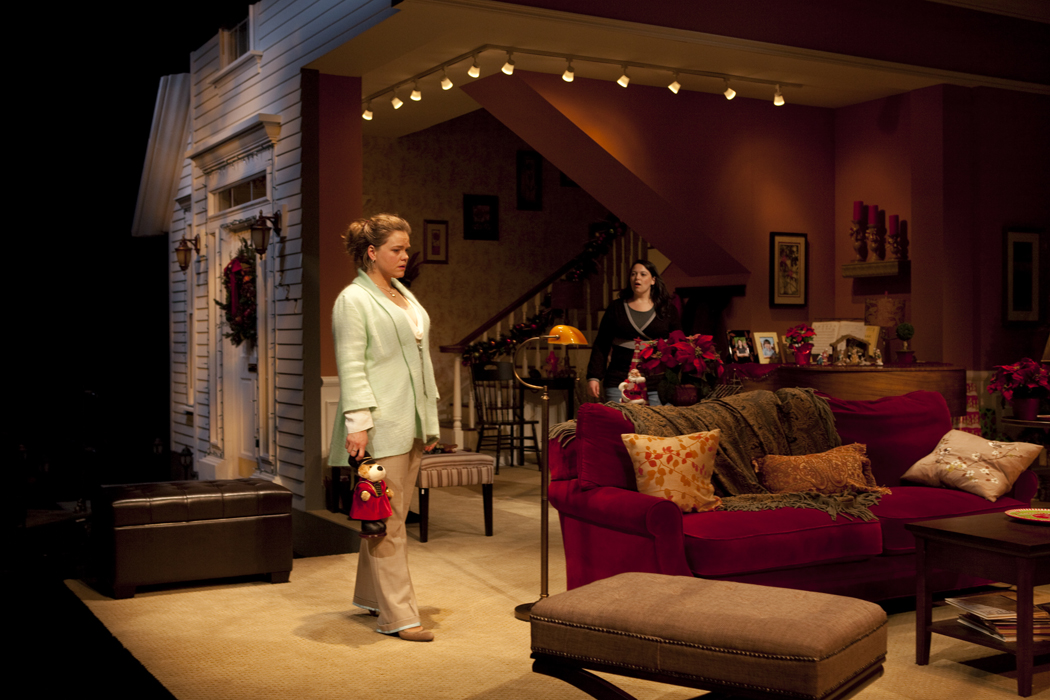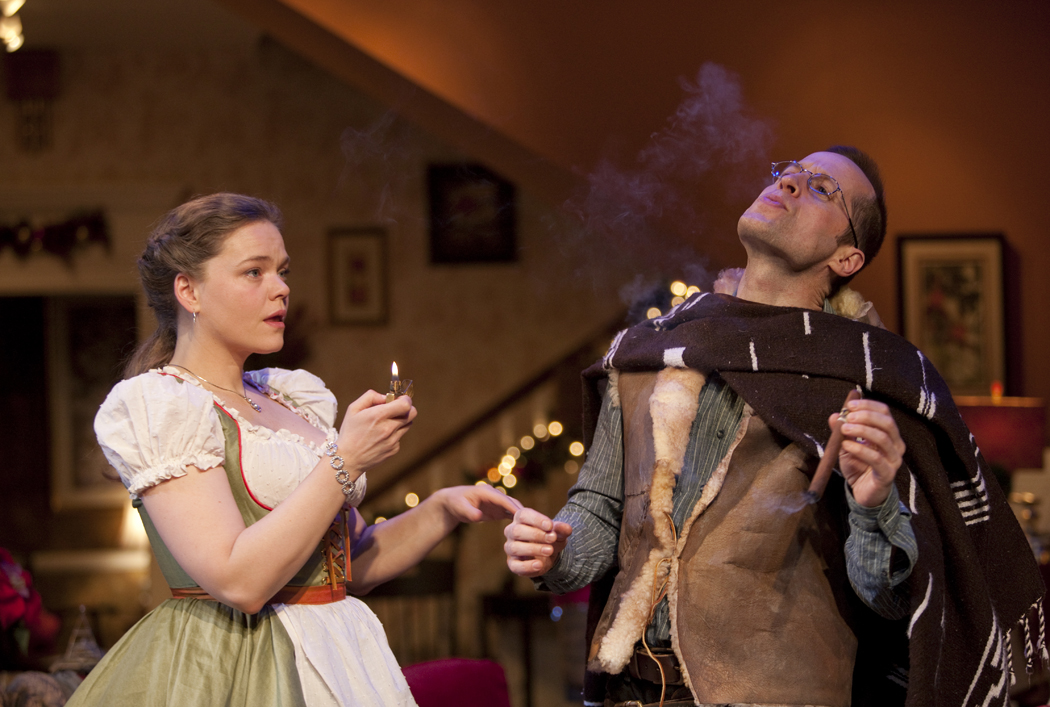 The Long Wharf Theatre production of Henrik Ibsen's A Doll's House managed a surprising feat: it made the play more entertaining without significantly altering it. If you're a purist who wants to see Ibsen played straight, it does that; but if you think that a play like ADH, with its winsome wifey who gets into some hot water due to an "innocent" forgery, then gets out of it only to slam the door on her happy-ever-after home, is a bit dated and could use some kind of make-over, well, this show does that too.
The Long Wharf Theatre production of Henrik Ibsen's A Doll's House managed a surprising feat: it made the play more entertaining without significantly altering it. If you're a purist who wants to see Ibsen played straight, it does that; but if you think that a play like ADH, with its winsome wifey who gets into some hot water due to an "innocent" forgery, then gets out of it only to slam the door on her happy-ever-after home, is a bit dated and could use some kind of make-over, well, this show does that too.
And that's what I found surprising: first, that one could perch Ibsen on the terrain of a sitcom or a soap; second, that I found myself thinking, well, isn't ADH simply a more revered soap? After all, the plot of the story is pure soap opera, and there's nothing in the dialogue that aims beyond the play's basic premise, which is something like: happiness is only skin deep. Scratch it, and it bleeds. So why not give us an A Doll's House (1879) that resonates in a world of McMansions where -- as is only too timely -- a bit of financial chicanery might bring the whole cloud castle down on a bank manager's ears.
Gordon Edelstein, who did the adaptation and directed, deserves great credit for mining the comic potential in the material. It mainly seemed to be a matter of emphasis. The dialogue, a bit modernized, was close to any version of the play we might already be familiar with, but this production included laughs that might be in Ibsen's script but which a less enterprising director might overlook. There was a breeziness to it that kept it from taking itself too seriously, a breeziness derived from the giddy fun of looking into our neighbors' glass house.
What's important, for a modern production, is that we not be laughing at Nora, the little bluebird, squirrel, chipmunk, as though she were simply in over her airhead and deserving of a little domestic contretemps for our amusement. Ana Reeder made the most of making Nora likeable, cannily dim rather than actually so. She managed the protean shifts that are necessary -- the play makes us see -- to be the "perfect wife": temptress, adoring partner, household manager, confidante to friends both male and female, defender of the threatened nest, even sacrificial victim (the latter a melodramatic touch that can't help seeming a bit 19th century). When, in the end, she does what she's got to do, the shifts from comically desperate to happily saved to proudly determined occur a bit too fast for realism, but Reeder "kept it real," as they say, helped by the change to casual jeans and sweatshirt after the hiked skirt, hose and low neckline of her belle of the ball costume as a dancing peasant girl. The "street clothes" underscored that her role in the household had been a command performance all along, and it was time for a curtain call.
In the supporting cast, special mention goes to Tim Hopper as Dr. Peter Rank, the ailing best friend of Nora's husband Torvald who carries a torch for her himself. Their scenes had enough heat to make up for the rather lukewarm affections of Torvald, and Hopper's doomed departure, in cowboy costume with a big cigar going, deserved an ovation. As Torvald, Adam Trese kept a part that could easily be a caricature sympathetic, even up to his panicked outburst at Nora for exposing him to his enemies. I liked him best at the end as he babbled about how he forgave her, sitting in his big papa chair, and his attempts to defeat her logic resonate so well, even 21st century males might easily hear Ibsen laughing at us.
As the villain in the piece, Mark Nelson's Nils Krogstad had a kind of shaky petulance that worked well enough in confronting Nora with her wrongdoings, and in his pleas to be reinstated at the bank, but made it hard to see what her friend Christine Linde (Linda Powell) could see in him. He seemed more eager to end it all rather than able to blackmail a boss's wife or rekindle an old romance.
Michael Yeargan's set was a wonderfully detailed doll's house, its fakery part of its appeal, with plenty of floorspace for Ibsen's and Edelstein's playthings to move about and grope toward some satisfactory vision of the future.
And what of the kids? It may be much easier for today's male to accept without much soul-searching Nora's claim that she needs to educate herself and find a place in the world; but does today's woman find it any easier to pursue that goal at the sacrifice of her ties to her children than women would in Ibsen's day? "You've come a long way, baby," since Ibsen's Nora first walked out -- but, Edelstein's production seems to ask, "how far would you go?"

LONG WHARF THEATRE, Gordon Edelstein, Artistic Director; Ray Cullom, Managing Director
presents:
A DOLL'S HOUSE by Henrik Ibsen, Adapted and Directed by Gordon Edelstein, Set Design by Michael Yeargan
through May 23, 2010